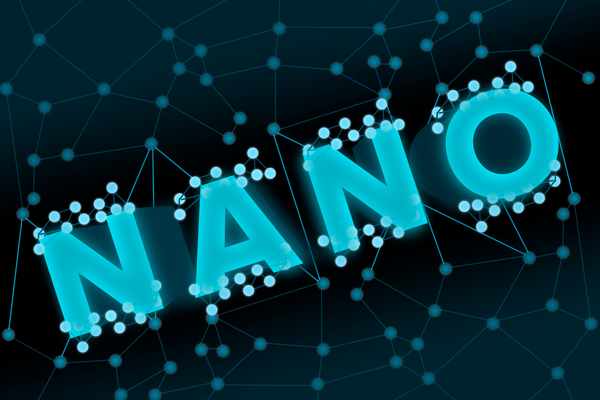“Amid the COVID-19 crisis, the global market for Nanotechnology estimated at US $54.2 Billion in the year 2020, is projected to reach a revised size of US$126.8 Billion by 2027” (Globe Newswire, July 15, 2020).
Over the last couple of decades, nanotechnology products and devices have become ballooning multi-billion dollar markets. Yet this is not about the burgeoning market size, or the dozens of countries and hundreds of companies that have been racing and investing heavily in that field. For better or worse, it’s about the qualitative change in the economics of industries and the way we live if the promise of nanotechnology is fulfilled.
Nanotechnology is on the verge of revolutionizing the global economy just like the combustion engine or computers once did. It has become the innermost frontier of the development of the means of production that has also been unfolding in the spheres of blockchain programing, AI, robots, space technology, and many other areas.
So what is nanotechnology? Well, let’s define what “nano” is first. A nanometer is a measure of distance that is equal to one billionth of a meter. For example the diameter of one hair is 80,000 – 100,000 nanometers. A sheet of paper is 100,000 nanometers thick. A single hemoglobin molecule in your blood is 5 nanometers long. A single water (H2O) molecule is 1.5 nanometers. So, nano refers to the length of microscopically small things like atoms and molecules of organic and inorganic matter. Think of it like an extremely small niño in Spanish
This is not about science either. It’s about the economic and social impact of nanotechnology.
As it turns out, scientists have managed to create machines and tools that allow them to manipulate atoms and molecules, to rearrange and reconstruct them, or help them reconstruct, in order to produce materials and devices with different/ better physical attributes than the ones they had at the macro level. For example, at the nano scale copper becomes transparent, not opaque, aluminum becomes combustible, gold becomes soluble (just like salt and sugar in water, so to speak). Thus ‘nanotubes’ made from carbon, for example, are 100 times stronger than steel but six times lighter. So how will that affect the steel industry, the metal alloys used in cars, and all the industries that use steel as an input, including the weapons industry?
Similarly, imagine a fabric that doesn’t wrinkle, stain, and can resist bacterial growth, or that can deflect small firearms bullets, or capture solar energy or energy from body movement. This is not science fiction. Scientists have been experimenting with this in labs, if it’s not being produced experimentally already, while considering economic feasibility.
“Nano-bioengineering of enzymes is aiming to enable conversion of cellulose from wood chips, corn stalks, unfertilized perennial grasses, etc., into ethanol for fuel.” (nano.gov). But where will that leave the oil and gas industry?
In electronics, transistors, the basic switches that enable all modern computing, have gotten smaller and smaller through nanotechnology… up to a one nanometer transistor in 2016!” (nano.gov). (Hence the conspiracy theories about injecting people with nanochips under the guise of giving them a vaccine for COVID-19).
In medicine, imagine that “iron oxide, gold and magnetic nanoparticles have the ability to attach themselves to proteins and/or other molecules. A number of companies are currently using these particles to advance diagnostic and imaging techniques.” (Microscope Master).
The applications of nanotechnology are endless, in information technology, medicine, transportation, energy efficiency, food safety, and environmental science, among many others.
In short, we may not feel it, but there is a cataclysmic change underway that will forever transform how we live and work. The question is: who will control nanotechnology? And how will it be used, by whom, in whose favor, and against whom?
Ibrahim Alloush
Nanotechnology: For Whom, against Whom? “Amid the COVID-19 crisis, the global market for Nanotechnology estimated at…
Geplaatst door Ibrahim Alloush op Zaterdag 3 oktober 2020

